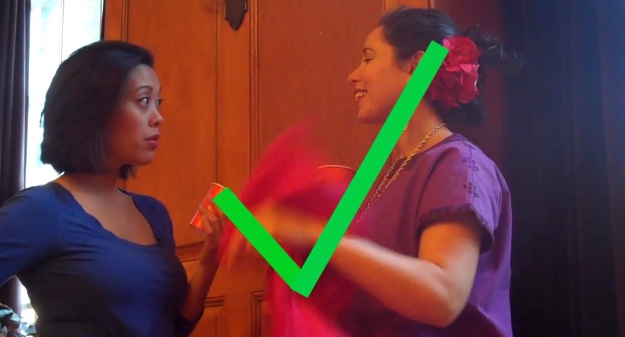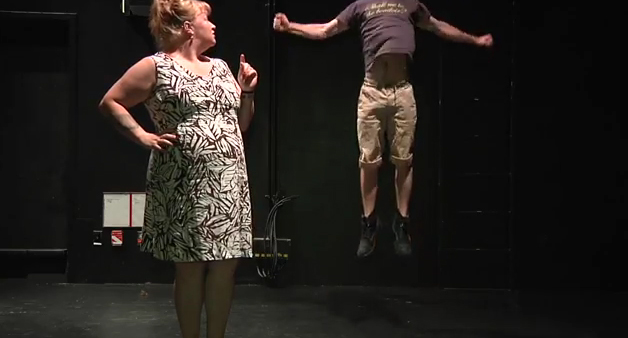It's essentially a magic box.
What do David Mamet, the Wooster Group, and The Vagina Monologues have in common? Not a lot, actually. But they did all get their start in black box theatres. A black box is a bare room with a movable seating area, a movable stage, and a flexible lighting system. It became popular during the explosion of experimental theatre in the 1960s, when storefronts, church basements, and even old trolley barns suddenly became intimate performance venues. This was an enormous break from the traditionally elaborate proscenium theatres, which still make up the majority of Broadway houses.
The concept of the black box has its roots in the European avant-garde of the early 20th century, through such pioneers as director/playwright Harley Granville Barker and designer Adolphe Appia. Barker’s ideal was, actually, “a great white box,” a vision that Peter Brook brought to life with his landmark 1970 production of A Midsummer Night’s Dream. As per the name, however, black boxes are often painted black and are square or rectangular in shape, with the idea that this is the most neutral setting in which to give productions a wide array of design and staging choices.
Today, there are scores of black box theatres in the United States alone, including Soho Rep in New York and Steppenwolf’s Garage Theatre in Chicago. They are also prominent at colleges and universities---for example, the Walt Disney Modular Theater at the California Institute of the Arts---where students are encouraged to immerse themselves in a variety of theatre styles and interpretations. These future artists can tell you that there are five basic ways to stage a play: with the audience on one side (proscenium style), two sides (center stage), three sides (thrust), four sides (theatre in the round), or environmental staging, in which the audience and actors intermingle.
The beauty of a black box theatre is that you can have any of those possibilities within one theatre space, sometimes within the same show.
--Andy Buck
This video was made by Soho Rep. Raphael Martin, Producer Lorenzo Anderson, Digital Content Producer Soho Rep is a leading hub for innovative contemporary theater in New York City. We are dedicated to artistic excellence by supporting distinctive, diverse and pioneering theater. We empower artists to make their boldest work and invite audiences to share in that intimate and transformative live experience. Soho Rep creates a dynamic context for both artists and audiences that promotes and sustains conversation in the field and the cultural fabric of the city.

